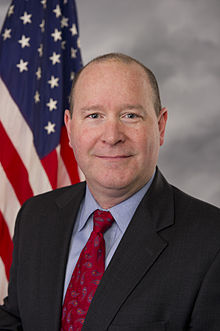Evansville Newspaper Can’t Claim Tax Deduction For Out-Of-Date Printing Press
 written by Olivia Covington for IndianaLawyer.com
June 6, 2017
A southern Indiana newspaper company cannot claim an “abnormal obsolescence†tax deduction for its purchase of a now-outdated printing press after a special tax court judge found the media company did not establish a prima facie case.
In 1989, Evansville Courier Co. Inc., purchased a 12-position flexographic printer which, at that time, was expected to become the most common method of printing newspapers. However, the popularity of flexographic printing faded within a few months and has now diminished to the point where Evansville Courier can no longer buy parts for the press from the manufacturer.
Therefore, when Evansville filed its 2011, 2013 and 2014 tax returns, it included a separate schedule applying an abnormal obsolescence deduction on the printing press and its related equipment, requesting roughly $650,000 in 2011, $3.5 million in 2013 and $5.1 million in 2014.
The Vanderburgh County assessor disallowed the deduction each of the three years, and Evansville Courier sought review with the Indiana Board of Tax Review, asking that its property be valued at $7.4 million, $5 million and $2.5 million for each of the three respective years. At a hearing before the board, Evansville Courier submitted appraisals that used the market approach to value the amount of abnormal obsolescence at $4.3 million, $4.44 million and $4.47 million, respectively.
The board ultimately denied Evansville Courier’s abnormal obsolescence petitions in September 2016, finding the company “failed to point to a single, specific, non-recurring triggering event†to justify abnormal obsolescence. Additionally, the board said the press is still operable and is expected to have five more years of useful life.
On appeal in Evansville Courier Company, Inc. v. Vanderburgh County Assessor, 02T10-1611-TA-55, the media company argued the board had erred by admitting into evidence a document submitted by the county that was not presented to Evansville Courier five days prior, as required under 52 Indiana Administrative Code 2-7-1(b)(1). The board had allowed the admittance of the evidence, which was a document challenging Evansville Courier’s appraisal, finding it was rebuttal evidence that “was specifically offered to challenge the validity of the Petitioner’s appraisals.â€
However, Special Tax Court Judge John Baker wrote in a Monday opinion that “the nondisclosure of a rebuttal witness is excused only when that witness was unknown and unanticipated… .â€
“Here, the County was well aware of the nature of (the appraiser’s) testimony and arrived at the hearing armed with evidence to rebut that testimony,†Baker wrote. “The exhibit in question was dated January 20, 2016, and the hearing occurred on January 26, 2016, meaning that this exhibit was known, anticipated, and actually available to be disclosed to Evansville Courier within the requisite timeline.â€
Thus, the admission of the evidence was erroneous. However, at the time of the assessed valuations, the press was still capable of “performing the function for which it was acquired,†Baker said, and the decline of the newspaper industry cannot be considered “nonrecurring†for purposes of abnormal obsolescence code. Instead, the judge described the change in newspapers has been gradual and was not precipitated by one single event.
Thus, despite the error in evidence admission, the board did not err in denying Evansville Courier’s abnormal obsolescence petitions, Baker said.




